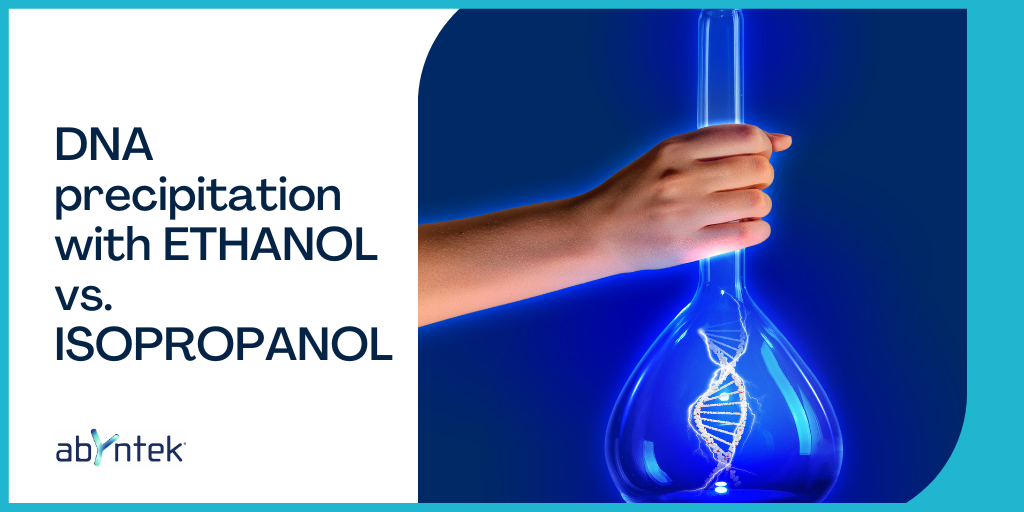DNA precipitation with ethanol or isopropanol is a technique frequently used in the laboratory to concentrate and desalinate nucleic acid preparations in aqueous solution.
In this post we will summarize the differences in DNA precipitation with ethanol and isopropanol to analyse the pros and cons of each method and to be able to select the best option in each case.
In Abyntek Biopharma we are leaders in the supply of reagents for scientific research. Contact us and we will advise you on the product you need to carry out your project.
DIFferences between dna precipitation with ethanol and isopropanol
1.- DNA solubility
DNA is less soluble in isopropanol, so when using this solvent, it will precipitate earlier and at a lower concentration, although with the disadvantage that the salts will also precipitate at the same time. The DNA precipitates to a final concentration of 35% isopropanol and 0.5 M salt.
By contrast, if we carry out a DNA precipitation with ethanol, since it is much more soluble in this medium, the DNA must be at a higher concentration so that it tends to precipitate, although with the advantage that the salts will remain soluble even at low temperatures. The DNA precipitates at a final concentration of 75% ethanol and 0.5 M salt.
2.- SAMPLE VOLUME
To precipitate DNA from small sample volumes, it is recommended to perform the cold extraction in order to recover the greatest amount of DNA possible, and therefore, the solvent of choice in this case would be ethanol, to avoid co-precipitation of the salts.
On the contrary, for the extraction of DNA from large sample volumes, the recommended solvent is isopropanol, since in this case the solvent must be used in less quantity. In order to minimize the co-precipitation of the salts, the precipitation with isopropanol should be carried out at room temperature with the shortest possible incubation times.
In case it is necessary to increase the yield, it will be decided to increase incubation times instead of proceeding to cool the sample. Once the DNA pellet is obtained, it must be washed with 70% ethanol to remove excess salt.

when to perform dna precipitation with ethanol or with isopropanol?
Precipitation with ethanol when:
- We have small volume samples.
- We have highly concentrated DNA samples.
- We need to store the sample for a long period of time in the cold.
Precipitation with isopropanol when:
- We have a larger sample volume.
- We have DNA samples at low concentration.
- We want to accelerate precipitation at room temperature.
Contact our experts here to find out which reagents are the most suitable for your DNA extraction and concentration!



